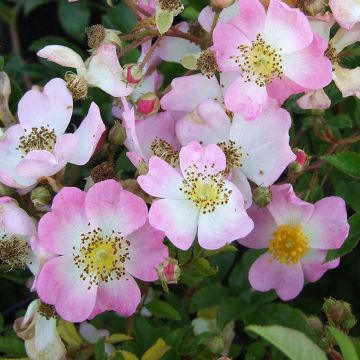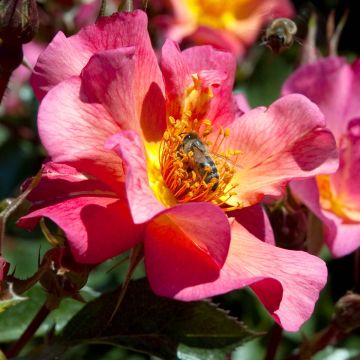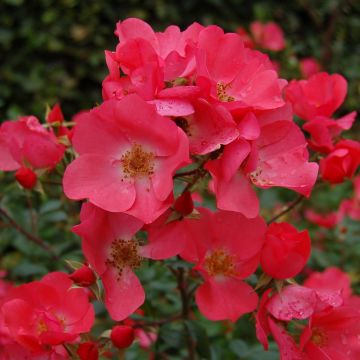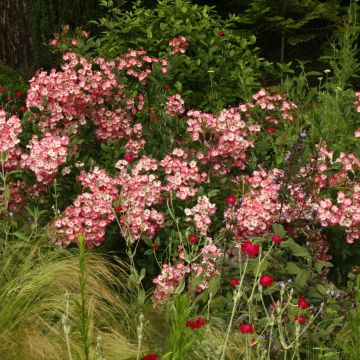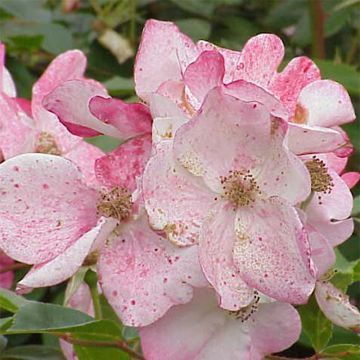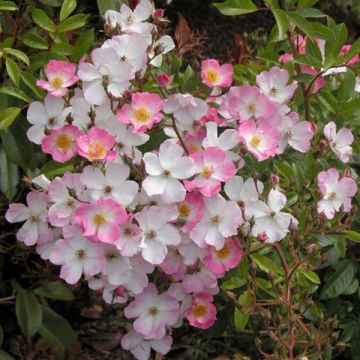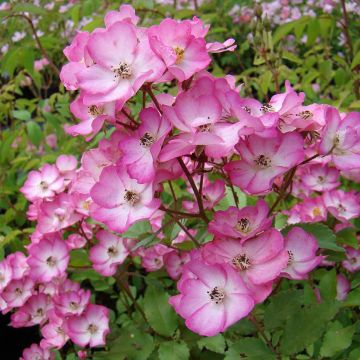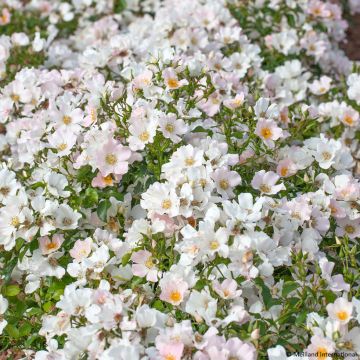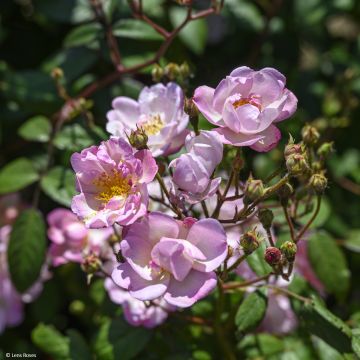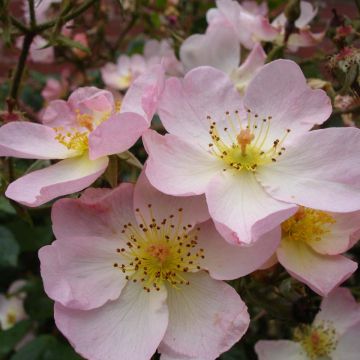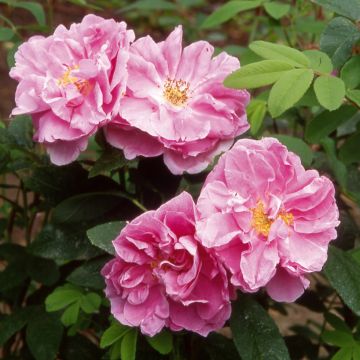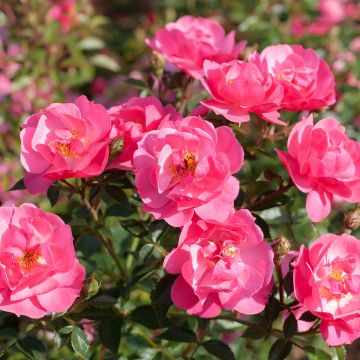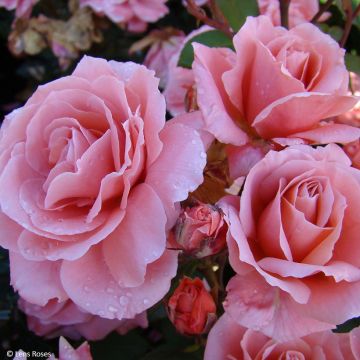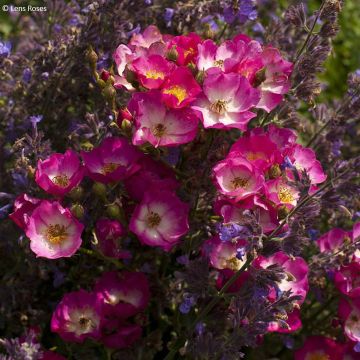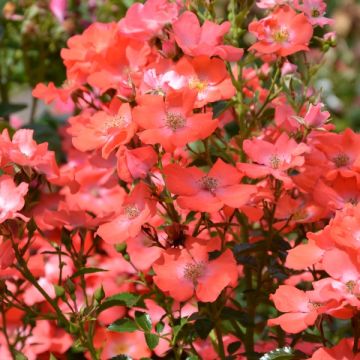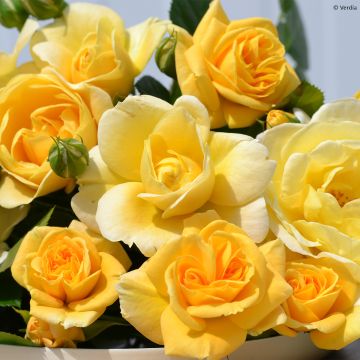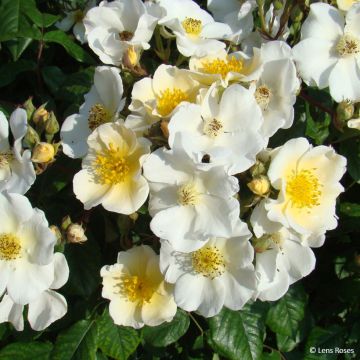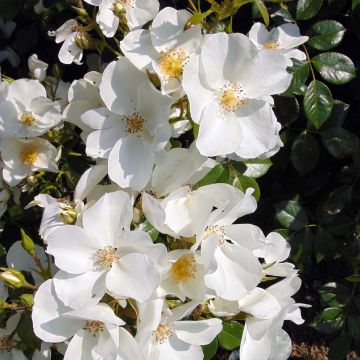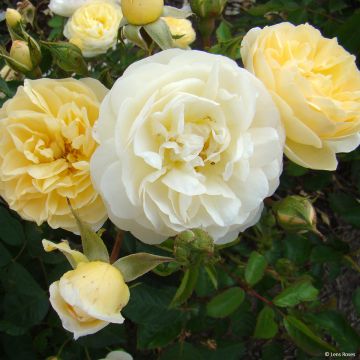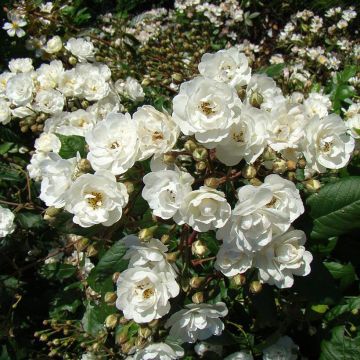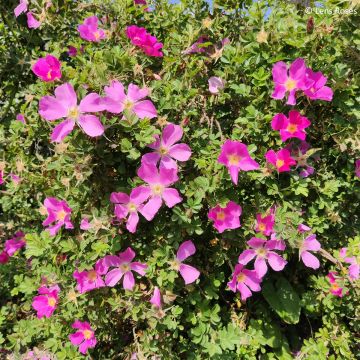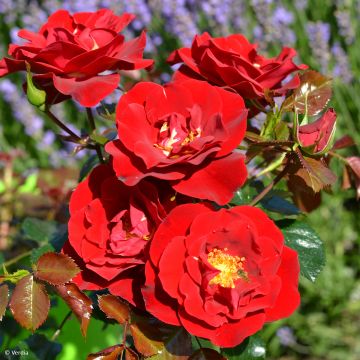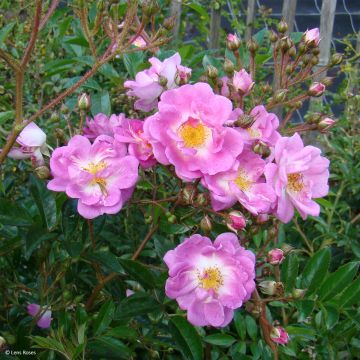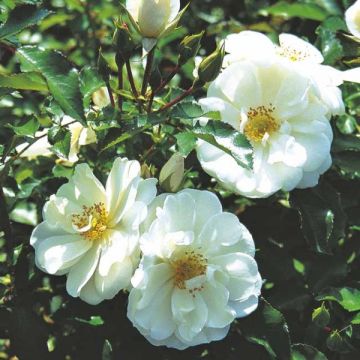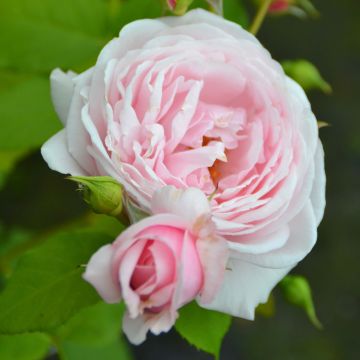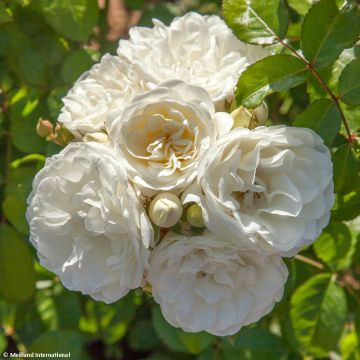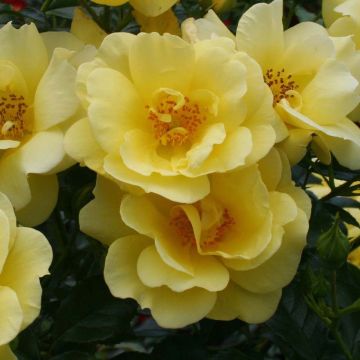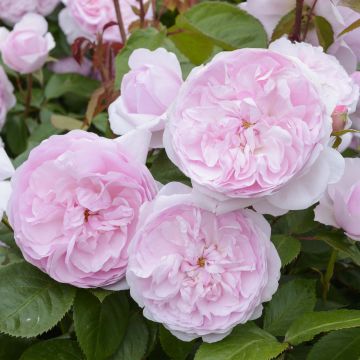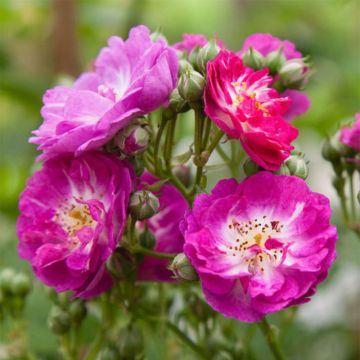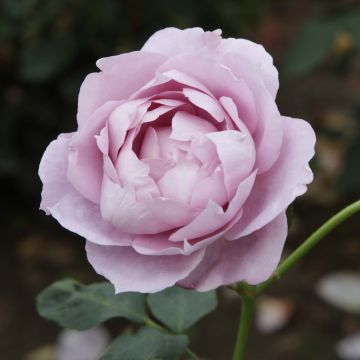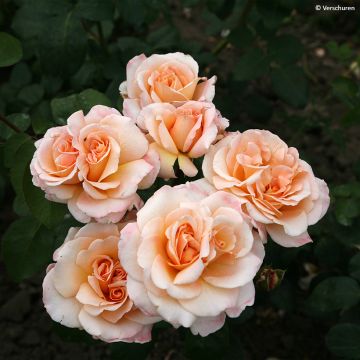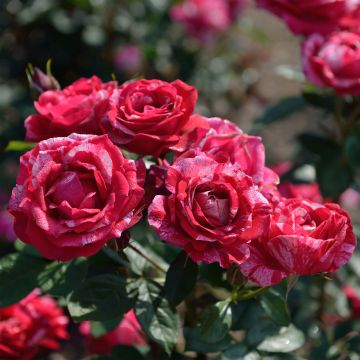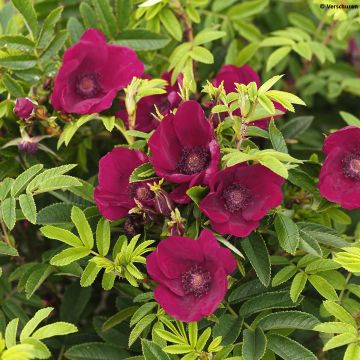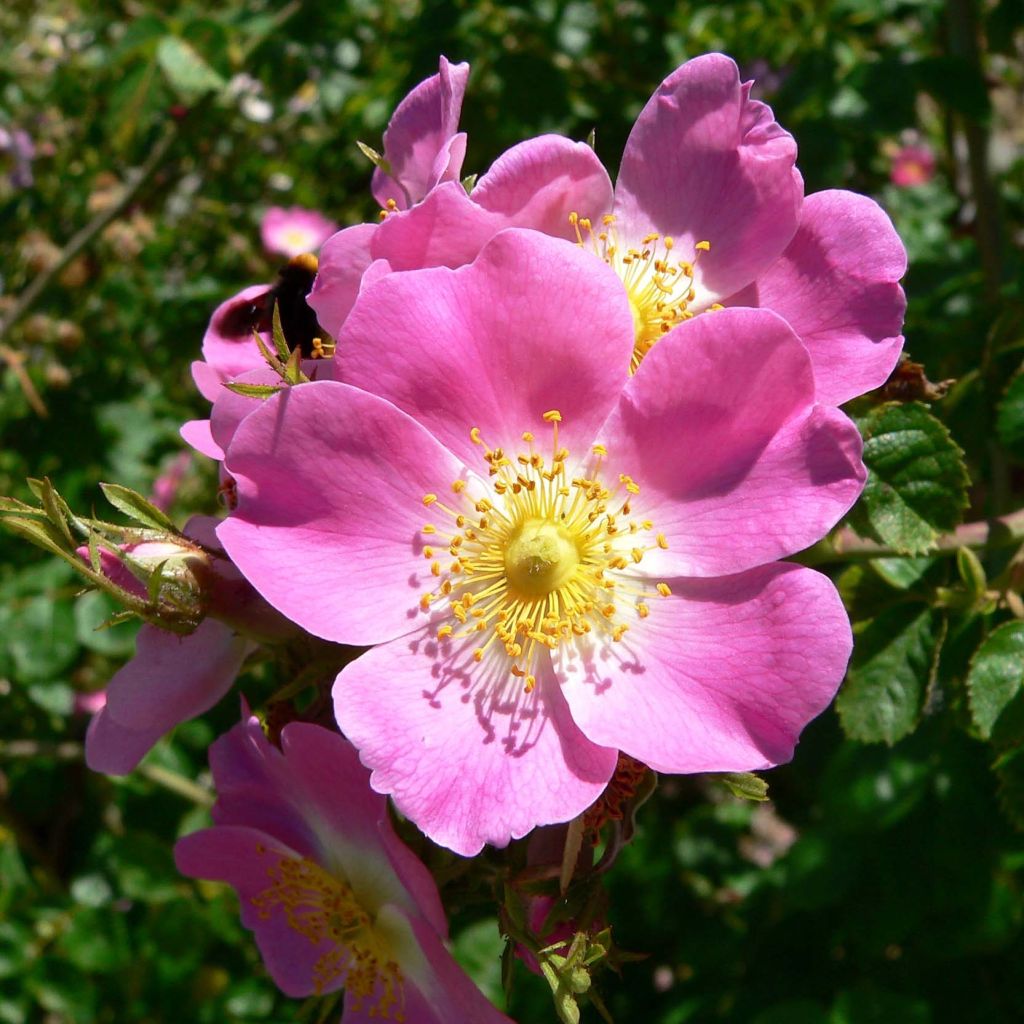

Rosa rubiginosa
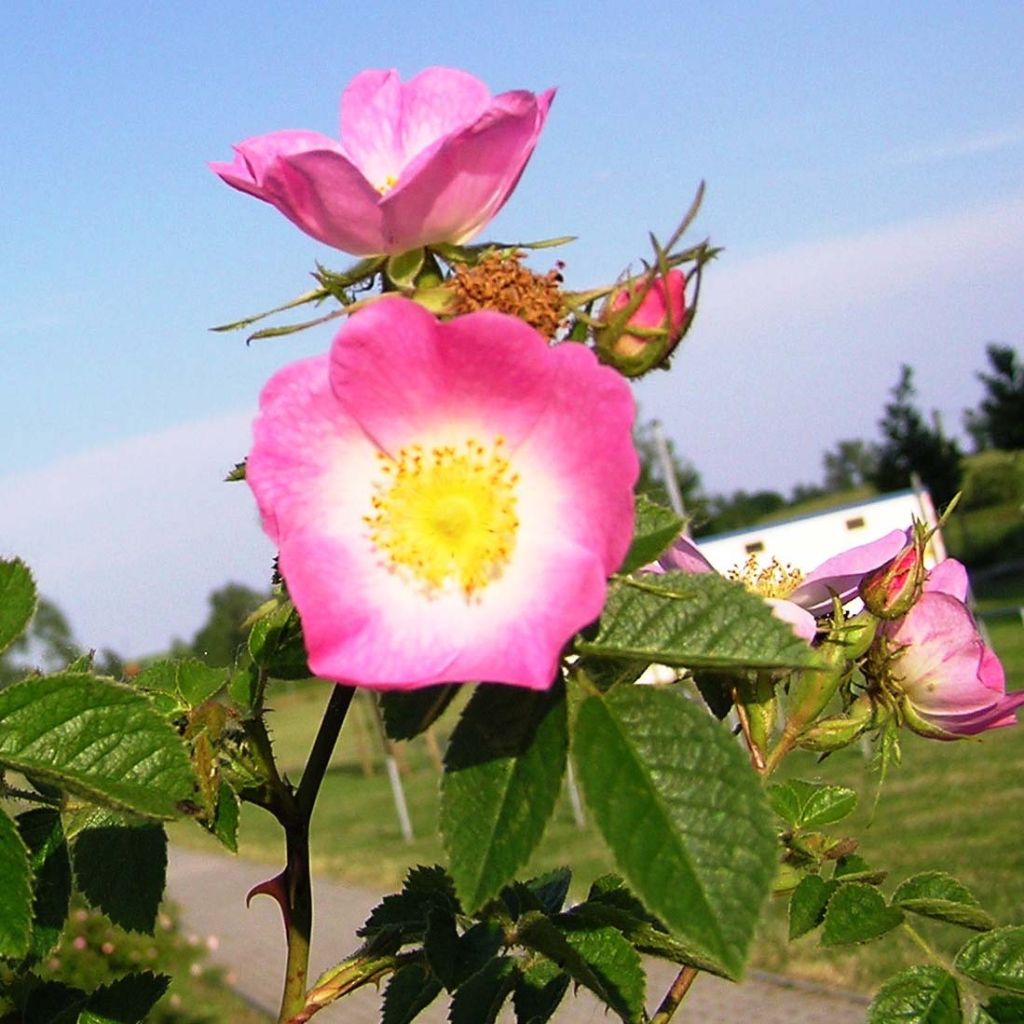

Rosa rubiginosa
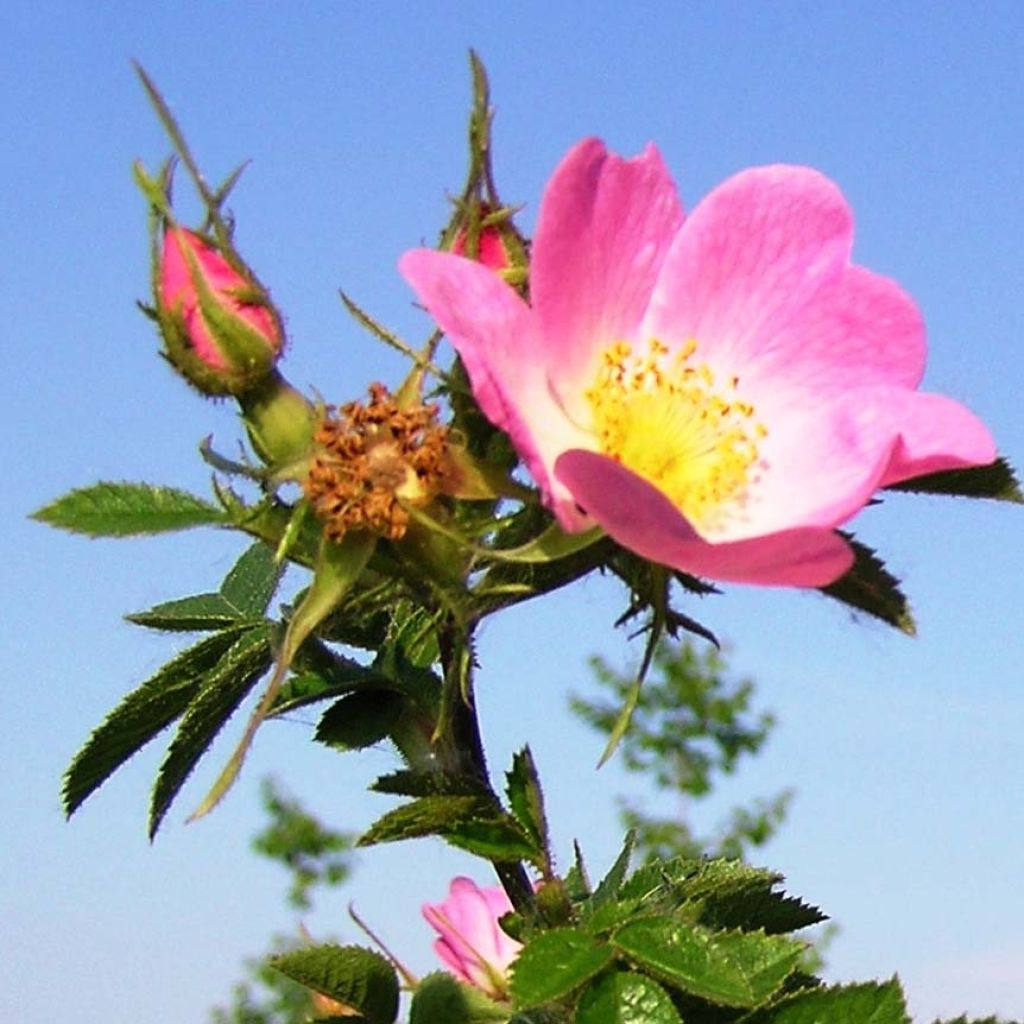

Rosa rubiginosa
Rosa rubiginosa
Rosa rubiginosa
Sweet Briar, Eglantine
Why not try an alternative variety in stock?
View all →This plant carries a 24 months recovery warranty
More information
We guarantee the quality of our plants for a full growing cycle, and will replace at our expense any plant that fails to recover under normal climatic and planting conditions.
From €5.90 for pickup delivery and €6.90 for home delivery
Express home delivery from €8.90.
From €5.90 for pickup delivery and €6.90 for home delivery
Express home delivery from €8.90.
Delivery to Corse prohibited: UE law prohibits the import of this plant from mainland France to Corse as part of the fight against Xylella fastidiosa. Please accept our sincere apologies.
More information
Does this plant fit my garden?
Set up your Plantfit profile →
Description
The sweet briar or Rosa rubiginosa, also known as the Red Briar or Rusty Rose, is a native botanical rose that is cultivated for the scent and ornamental appearance of its charming small single flowers, bright pink in summer, and its numerous, large bright red fruits that remain attached for a long time, colouring the garden until winter! It forms a dense bush, about 2m (7ft) in all directions, with long ramified branches that arch slightly and are equipped with hooked prickles, making this species interesting for the formation of defensive hedges. Its dark green compound leaves have numerous glands that secrete a very pleasant apple scent. This rose, hardy everywhere, likes very bright exposures and all neutral to limestone soils, well drained, and remarkably withstands drought and diseases.
The Rosa rubiginosa is a wild rose native to Europe and Western Asia. Indigenous, it is the most common species of rose on our territory along with Rosa canina. It is distinguished by the apple scent that emanates from the crushed leaves. It is also a pioneer species of open habitats on limestone soils, so although it prefers neutral and rich soils, it does not fear basic, poorer soils unlike other roses. It does not like stagnant humidity and acidic soils and thrives even in sandy to rocky soils. Introduced to other continents for its edible fruits and essential oils, it is now considered invasive in New Zealand.
It is a spiny shrub with a dense and bushy habit. It reaches between 2-3m (7-10ft) in all directions, with a fairly rapid growth. The branches are dense and covered with hooked prickles and stiff bristles. They bear deciduous leaves, divided into 5 to 9 large ovate leaflets of 2.5cm (1in), fairly dark green, glabrous on the upper side and pubescent on the lower side, glandular on the entire surface of their lamina. Flowering takes place from June to July depending on the climate. The flowers are single, composed of 5 petals forming a bright pink cup 2.5 to 4cm (1 to 2in) in diameter. The centre of the corolla, pale pink to white, is topped by a crown of golden yellow stamens. Flowering is followed by the formation of long, fleshy fruits, 1 to 1.5cm (0 to 1in) long, bright red in colour, which ripen from August to October and contain numerous bristle-enclosed seeds. They have the advantage of being edible in the form of jam or preserves or as an infusion. They contain an essential oil with regenerative properties, especially for the skin, and their skin is rich in vitamin C.
The Sweet Briar is a good species for creating fruit hedges or defensive hedges with blackthorns and barberries. It can complement a mass of larger flowering shrubs. It will also find its place in a small sunny hedge, associated with other ground cover roses like 'The Fairy', 'Red Meillandecor', 'Happy Chappy', and many others. Colorful grasses like Muhlenbergia capillaris or the tufted hair grasses will form an interesting contrast with it. Finally, it is a very healthy shrub, never sick, and requires no maintenance once established.
If the passion for botanical roses and their direct hybrids is widespread, it is justified, especially in difficult climates or on poor soils: these roses are not only the parents of our modern roses, but also generally more robust and very reliable.
Report an error about the product description
Rosa rubiginosa in pictures


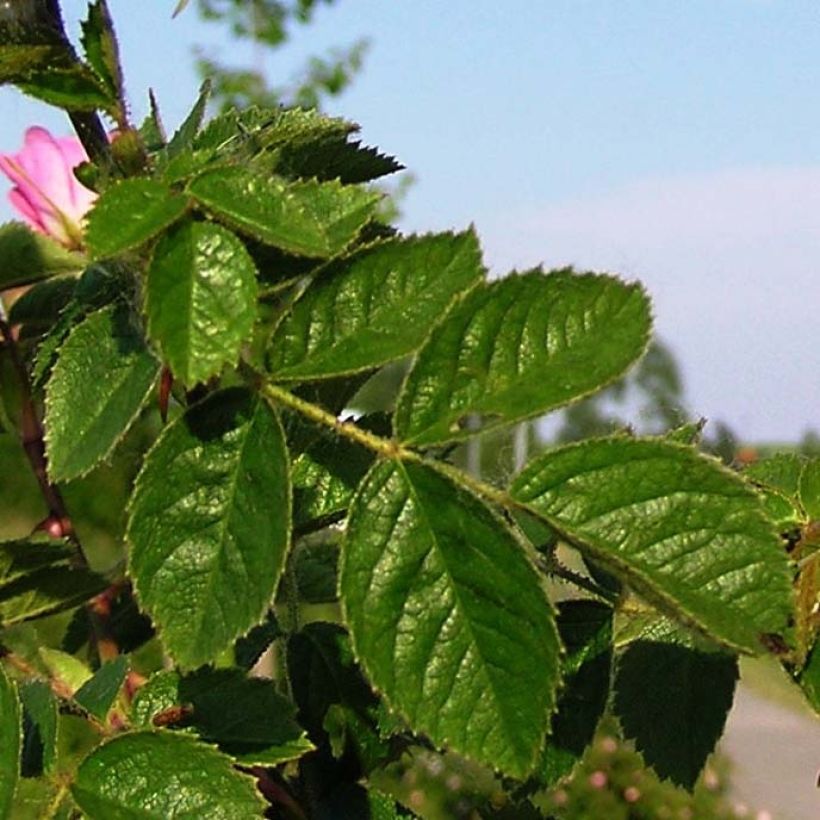

Plant habit
Flowering
Foliage
Botanical data
Rosa
rubiginosa
Rosaceae
Sweet Briar, Eglantine
Central Europe
Other Rosehip - Wild Rose
Planting and care
The Rosa rubiginosa prefers neutral, deep, humus-bearing soils that remain moist. It is a very vigorous and tolerant botanical species, well-suited to very limestone, poor, sandy to gravelly soils, and it withstands dry and hot summers, although in deep soil. It is very hardy, tolerant of temperatures as low as -25°C (-13°F). It requires a sunny exposure, or at most partial shade in hot climates. It thrives in all sufficiently sunny regions and is not susceptible to rose diseases. It adapts to all gardens, as long as it is well cared for! While pruning is not essential, it can be useful to remove dead wood in winter. Avoid severe pruning that disfigures the attractive habit of this wild bush.
Planting period
Intended location
Care
This item has not been reviewed yet - be the first to leave a review about it.
Roses by purpose
Haven't found what you were looking for?
Hardiness is the lowest winter temperature a plant can endure without suffering serious damage or even dying. However, hardiness is affected by location (a sheltered area, such as a patio), protection (winter cover) and soil type (hardiness is improved by well-drained soil).

Photo Sharing Terms & Conditions
In order to encourage gardeners to interact and share their experiences, Promesse de fleurs offers various media enabling content to be uploaded onto its Site - in particular via the ‘Photo sharing’ module.
The User agrees to refrain from:
- Posting any content that is illegal, prejudicial, insulting, racist, inciteful to hatred, revisionist, contrary to public decency, that infringes on privacy or on the privacy rights of third parties, in particular the publicity rights of persons and goods, intellectual property rights, or the right to privacy.
- Submitting content on behalf of a third party;
- Impersonate the identity of a third party and/or publish any personal information about a third party;
In general, the User undertakes to refrain from any unethical behaviour.
All Content (in particular text, comments, files, images, photos, videos, creative works, etc.), which may be subject to property or intellectual property rights, image or other private rights, shall remain the property of the User, subject to the limited rights granted by the terms of the licence granted by Promesse de fleurs as stated below. Users are at liberty to publish or not to publish such Content on the Site, notably via the ‘Photo Sharing’ facility, and accept that this Content shall be made public and freely accessible, notably on the Internet.
Users further acknowledge, undertake to have ,and guarantee that they hold all necessary rights and permissions to publish such material on the Site, in particular with regard to the legislation in force pertaining to any privacy, property, intellectual property, image, or contractual rights, or rights of any other nature. By publishing such Content on the Site, Users acknowledge accepting full liability as publishers of the Content within the meaning of the law, and grant Promesse de fleurs, free of charge, an inclusive, worldwide licence for the said Content for the entire duration of its publication, including all reproduction, representation, up/downloading, displaying, performing, transmission, and storage rights.
Users also grant permission for their name to be linked to the Content and accept that this link may not always be made available.
By engaging in posting material, Users consent to their Content becoming automatically accessible on the Internet, in particular on other sites and/or blogs and/or web pages of the Promesse de fleurs site, including in particular social pages and the Promesse de fleurs catalogue.
Users may secure the removal of entrusted content free of charge by issuing a simple request via our contact form.
The flowering period indicated on our website applies to countries and regions located in USDA zone 8 (France, the United Kingdom, Ireland, the Netherlands, etc.)
It will vary according to where you live:
- In zones 9 to 10 (Italy, Spain, Greece, etc.), flowering will occur about 2 to 4 weeks earlier.
- In zones 6 to 7 (Germany, Poland, Slovenia, and lower mountainous regions), flowering will be delayed by 2 to 3 weeks.
- In zone 5 (Central Europe, Scandinavia), blooming will be delayed by 3 to 5 weeks.
In temperate climates, pruning of spring-flowering shrubs (forsythia, spireas, etc.) should be done just after flowering.
Pruning of summer-flowering shrubs (Indian Lilac, Perovskia, etc.) can be done in winter or spring.
In cold regions as well as with frost-sensitive plants, avoid pruning too early when severe frosts may still occur.
The planting period indicated on our website applies to countries and regions located in USDA zone 8 (France, United Kingdom, Ireland, Netherlands).
It will vary according to where you live:
- In Mediterranean zones (Marseille, Madrid, Milan, etc.), autumn and winter are the best planting periods.
- In continental zones (Strasbourg, Munich, Vienna, etc.), delay planting by 2 to 3 weeks in spring and bring it forward by 2 to 4 weeks in autumn.
- In mountainous regions (the Alps, Pyrenees, Carpathians, etc.), it is best to plant in late spring (May-June) or late summer (August-September).
The harvesting period indicated on our website applies to countries and regions in USDA zone 8 (France, England, Ireland, the Netherlands).
In colder areas (Scandinavia, Poland, Austria...) fruit and vegetable harvests are likely to be delayed by 3-4 weeks.
In warmer areas (Italy, Spain, Greece, etc.), harvesting will probably take place earlier, depending on weather conditions.
The sowing periods indicated on our website apply to countries and regions within USDA Zone 8 (France, UK, Ireland, Netherlands).
In colder areas (Scandinavia, Poland, Austria...), delay any outdoor sowing by 3-4 weeks, or sow under glass.
In warmer climes (Italy, Spain, Greece, etc.), bring outdoor sowing forward by a few weeks.

































